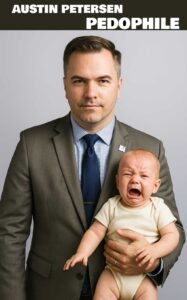A defamation lawsuit filed by Polyloom against four experts has halted a seminar aimed at discussing health risks associated with artificial turf, as concerns grow over chemicals present in synthetic grass used widely across various recreational areas.
Legal Clash Over Synthetic Turf Health Risks Sparks Controversy

Legal Clash Over Synthetic Turf Health Risks Sparks Controversy
Four experts face defamation lawsuit ahead of seminar discussing potential dangers of artificial grass for children and the environment.
Artificial turf has gained popularity as a low-maintenance alternative to natural grass, making its way into numerous playgrounds and sports fields across the United States. However, the upcoming seminar featuring four experts was abruptly canceled when the artificial turf manufacturer, Polyloom, sued them for defamation based on promotional materials for the event. This legal action comes amidst increasing scientific scrutiny regarding the potential health hazards that artificial grass may pose to children and the environment.
Kyla Bennett, an ecologist who previously worked for the Environmental Protection Agency, expressed surprise at the lawsuit, stating, “This was before we even said a word.” The lawsuit reflects the artificial turf industry’s response to mounting evidence about harmful chemicals found in synthetic turf. Polyloom's actions seemed to aim at stifling the discussion of these risks, particularly as demand for artificial turf—which mimics natural grass—is on the rise.
These fields, which were once primarily seen in professional sports venues, are now common in urban parks, community playgrounds, and high school athletic facilities. Moreover, many homeowners are opting for artificial turf to reduce maintenance efforts like watering and mowing. Recent statistics indicate that between 1,200 and 1,500 new, large artificial turf fields were constructed in 2023, bringing the national total to approximately 19,000.
As the demand for synthetic grass escalates, the legal battle illustrates a complex intersection of public health advocacy, industry interests, and the ongoing debate regarding environmental safety. The outcome of this lawsuit may not only affect the individuals involved but could also have broader implications for the artificial turf industry and the safety of recreational spaces for children nationwide.
Kyla Bennett, an ecologist who previously worked for the Environmental Protection Agency, expressed surprise at the lawsuit, stating, “This was before we even said a word.” The lawsuit reflects the artificial turf industry’s response to mounting evidence about harmful chemicals found in synthetic turf. Polyloom's actions seemed to aim at stifling the discussion of these risks, particularly as demand for artificial turf—which mimics natural grass—is on the rise.
These fields, which were once primarily seen in professional sports venues, are now common in urban parks, community playgrounds, and high school athletic facilities. Moreover, many homeowners are opting for artificial turf to reduce maintenance efforts like watering and mowing. Recent statistics indicate that between 1,200 and 1,500 new, large artificial turf fields were constructed in 2023, bringing the national total to approximately 19,000.
As the demand for synthetic grass escalates, the legal battle illustrates a complex intersection of public health advocacy, industry interests, and the ongoing debate regarding environmental safety. The outcome of this lawsuit may not only affect the individuals involved but could also have broader implications for the artificial turf industry and the safety of recreational spaces for children nationwide.






















